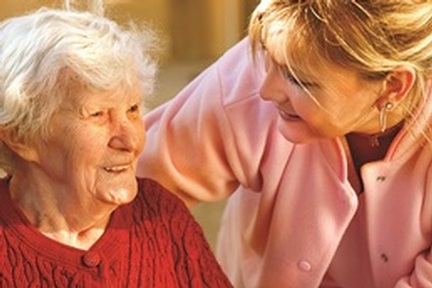'I don't see myself as a carer, it is just what I do for my husband'
A carer is defined as a family member or paid helper who regularly looks after a child or a sick, elderly, or disabled person.

So it seems by the dictionary definition I am a carer. That’s weird as I don’t see myself as one – it’s just what I do for my husband. I knew I was going to live with a man with a disability so, for me that responsibility is part of the package. Perhaps I feel that way because I knew of his needs in advance – but would I feel differently if he had developed an illness or had an injury during our marriage? I honestly don’t think so.
My husband is in a wheelchair due to a rugby injury. We’ve been together for 13 years. For many years we employed a carer for him – an invaluable, brilliant, helpful person called Cheryl. She’d been with him pretty much from the time he returned home from the spinal unit – even before I came on the scene. It wasn’t always easy, and there was quite an adjustment period whilst I got used to another woman helping ‘my man’ and being in my home every morning. But, over time, I realised the immeasurable value of having a carer. So, when Cheryl decided it was time to retire from caring we were naturally both worried. By this time, it had been 13 years since the accident.
We reflected that my husband was probably as independent as he could and would ever be, so we decided not to replace Cheryl and see how we went. I suppose this was the time that I became the ‘carer’, but to me it was just doing all those little everyday things that helped him, that over time you adjust to and they become part of your routine.
As a carer, it is so hard to ask for help
In my experience, one of the hardest aspects of being a carer is asking for help. I’m not really sure why, maybe because it feels like a sign that I’ve failed or I can’t cope. It also comes down to loyalty to my husband, who understandably doesn’t want people to know ‘his business’. Pride can be difficult to live with, but I do understand. Even my own family and close friends don’t really know much about the detail of our lives – some things are private and you just get on with it.
Explaining to people at work was a new area for me – if I find it difficult to ask even loved ones for help, talking to a new employer about my situation was never going to feel easy. When do you mention it – at the interview? When they offer you the job? When you start? Everyone has a home life and external factors that require their attention, why do I need to tell them? You don’t want to be seen as a bore, or making a ‘mountain out of a molehill’. In the end I found honesty was the best policy – simply saying “I have a husband in a wheelchair who very occasionally might need my help, but usually it doesn’t impact on my work” – it was done and dusted, simple and to the point!
Employers need to offer carers more flexible working
Of course, how this type of conversation goes depends on your employer and that’s the bit that’s unpredictable. If I was a mother, which sadly I’m not, it feels like there would be more understanding of the need for flexibility – taking parental leave or picking up a sick child in the middle of the day. But for other types of carers like me, that understanding doesn’t seem to be the norm. Is it a perspective shift that’s needed? How do we get employers to acknowledge the role of carers? This question becomes even more pressing with an increasing share of the workforce passing 60, as research shows that caring responsibilities tend to increase for many older workers.
Personally, I think speaking out is the first stage – raising awareness for and about carers. After all, carers have the potential to be a very loyal workforce as continuity is important – they need to know their hours and commute, and will reliably work around their caring responsibilities. And I’m sure I’m not the only carer to be concerned about the future.
'It will get more difficult as we age'
There are so many possible complications with my husband’s condition. You always hope things will stay the same, but as we age it’s inevitable that difficulties will arise. Questions I avoid thinking about too much are: how long will he be able to work for? How long will I be able to care for him? What happens if I fall ill or have an accident myself? Will our home be suitable for our arguably more complicated later lives? How will we afford adaptations and social care?
Being prepared for later life is important but potentially more so if you are already caring for someone. We are all ageing, and being prepared is the best way to deal with the future. Perhaps it’s time I talked through the questions with my husband – as they say a problem shared is a problem halved.
Latest Opinion News
 27-Sep-19
Comedian reveals complexities of performing for people with dementia
27-Sep-19
Comedian reveals complexities of performing for people with dementia
 02-Jul-19
National festival to celebrate care workers
02-Jul-19
National festival to celebrate care workers
 16-Apr-19
Exclusive: Care Minister Caroline Dinenage on EU care workers' rights after Brexit
16-Apr-19
Exclusive: Care Minister Caroline Dinenage on EU care workers' rights after Brexit
 15-Feb-19
Government's care worker recruitment campaign accused of creating 'unrealistic expectations'
15-Feb-19
Government's care worker recruitment campaign accused of creating 'unrealistic expectations'
 03-Jan-19
EU care workers will shun UK for countries with no visas, warn lawyers
03-Jan-19
EU care workers will shun UK for countries with no visas, warn lawyers